This year will be remembered as the year when the government presented two budgets, Opposition Leader Simon Busuttil said this evening.
Dr Busuttil this evening delivered his reply to last week’s budget speech.
The Opposition Leader said the Nationalist Party had, for the first time in history, presented its own Pre-Budget document because it wanted to give its contribution. Joseph Muscat never did this in the five years he spent as Leader of the Opposition.
The documents had something in common – they both featured Renzo Piano’s parliament on the cover. “Could you not have come up with a photo of one of your own projects?” he asked.
Instead of welcoming this initiative, the government had tried to ridicule the PN document. Finance Minister Edward Scicluna had even gone as far as to urge the PN to withdraw its “embarrassing document.” However it was the same minister who presented two different documents in parliament and ended up having to withdraw one of them. That was truly embarrassing, Dr Busuttil said.
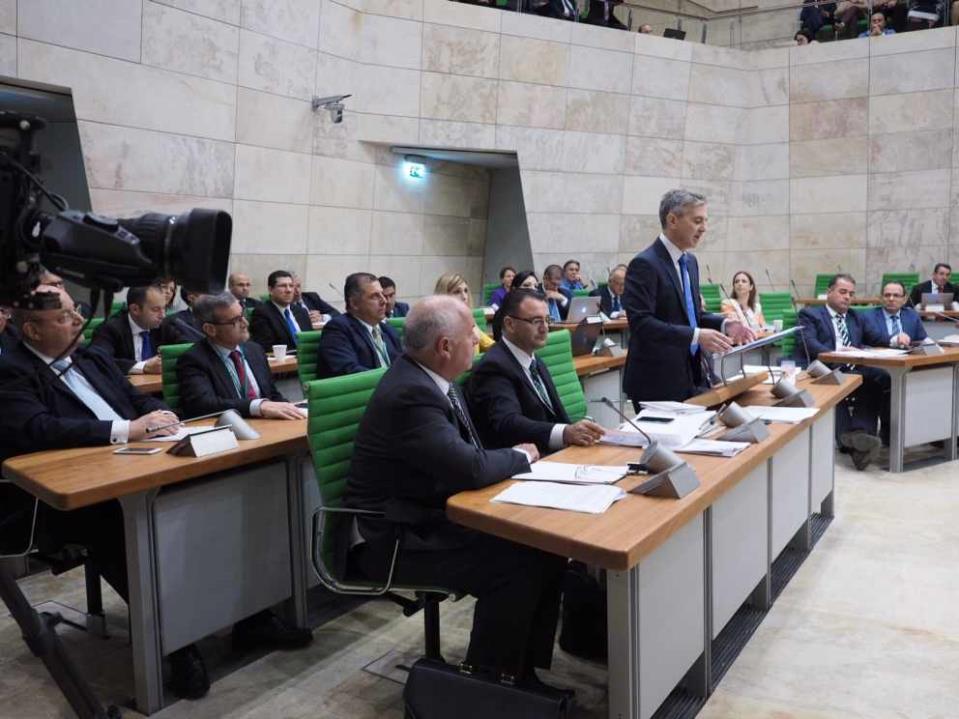
This was not a simple mistake. There were no less than 50 differences between the two documents. This showed that the government had a choice of what to include in the budget. Between giving a lot and giving a little, the government had chosen the latter.
As an example, the pre-budget document mentioned a €5.16 weekly increase for persons with disabilities but this measure was not included in the budget speech. Was the economy not doing well when it came to disabled people?
In the first document the government had also included an €800 increase for Gozitan students but in the budget speech this was reduced to €300. Why was the government being miserly with students?
Another measure to increase police presence in areas like Paceville was also not included in the budget. The Prime Minister has more police officers around him than protecting our youths in Paceville, Dr Busuttil quipped.
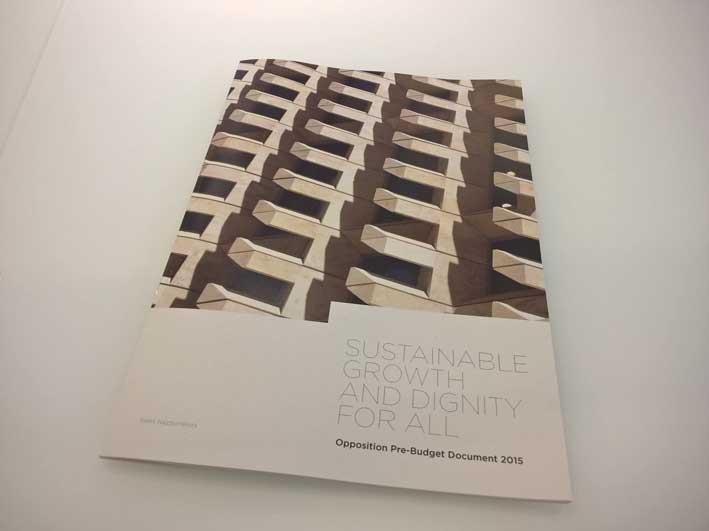
In its pre-budget document, the PN outlined its proposals for sustainable growth and dignity for all. The truth, he said, was that this was not a budget that focused on these two concepts.
Government propaganda gave the impression that the economy only started doing well after Joseph Muscat became Prime Minister. This was not the truth. The economy was reaping the seeds sown by previous administrations and the decision to join the EU and the euro. The truth was that some €1.5 million in EU funds were pumped into the economy during the past 11 years, with the funds invested in projects. This administration would also be benefitting from almost a billion euro in EU funds.
The government’s budget for capital projects for the coming year had decreased by some €125 million. There was not one single project that was started and finished by the current administration. The Renzo Piano project, the interconnector, the Oncology Centre, the Coast Road and the flood relief projects had all been started by the last PN government.
Economic growth under this administration was not sustainable, Dr Busuttil said. For a start growth was heavily dependent on government spending, which had increased by an alarming rate. And instead of spending money on capital projects and investment, the government was spending more on a bigger public sector payroll and consultancy services. Government spending had, in fact, increased by more than €180 million. This year it would exceed €200. The government had increased the public sector by 5,500 workers, reversing previous trends.
The public sector increase, Dr Busuttil said, was also manipulating unemployment figures. Reducing unemployment by employing people in the public sector was not the solution, he said.
The Opposition Leader also accused the government of removing some 1,300 people from the unemployment register to give the impression that less people were registering for work.
Dr Busuttil also said exports were down and the government had no vision for new economic sectors – except for the sale of passports.
The government also boasted about the tourism results but everyone knew that the sector boomed with the introduction of low-cost airlines. Dr Muscat had been against this.
The PN believed in the creation of new sectors and that the country should not be dependent on a couple of sectors. The party, he said, would be unveiling its own document on the economic vision for the coming years in the coming days.

Economic growth should not come at the cost of the environment. This government had already relegated the environment and its policies on the sector were extremely short-sighted. It had put property development as an easy target for growth and MEPA was issued permits left, right and centre, without any regard to the environment. This was also risking a property bubble.
ODZ land was not ODZ at all for the government, Dr Busuttil said, referring to the Zonqor Point saga. To top it all off, it had also decided to split MEPA in two, thus relegating the environment to second place.
The PN was not anti-development but it was in favour of sustainable development. That is why one of its proposals was to value ODZ land with the same rates as prime development zones.
It had also presented a Private Members Bill on the Public Domain but, five months down the line, the government has not even reacted to it.
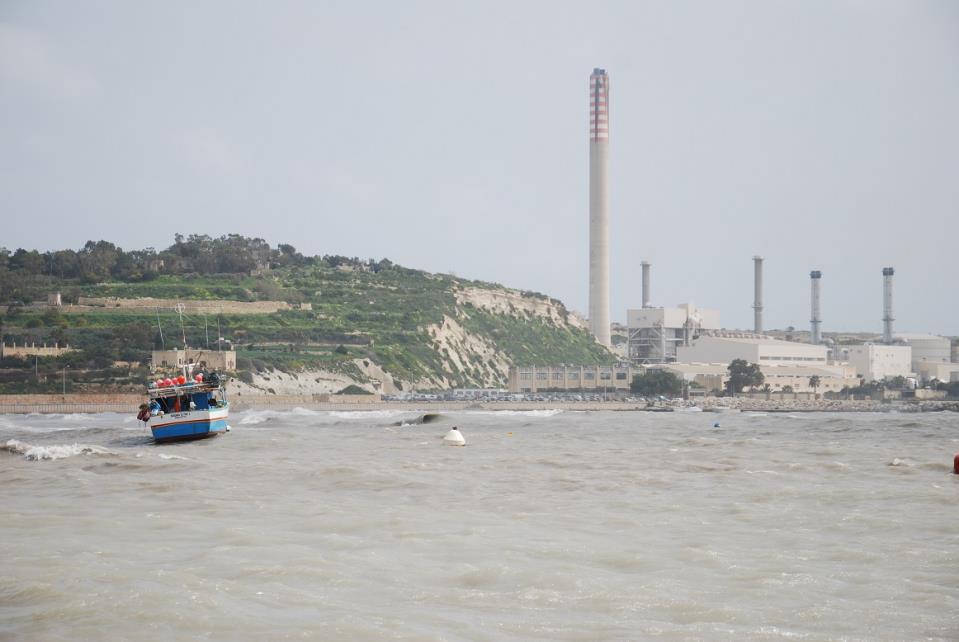
Dr Busuttil claimed that Malta’s competitiveness was being lost because of the prices of electricity and fuel. The price of oil had gone down to a third of what it was but energy tariffs remain unchanged. The PN had joined the GRTU, Chamber of Commerce and MEA in calling for lower rates but the government had ignored these calls.
Apart from the lower international prices there were other reasons why energy tariffs should be reduced. These included the more efficient BWSC power station, the interconnector.
Dr Busuttil claimed that that in August, the interconnector was being used at 97% capacity. 62% of electricity used during that period was being imported from the EU grid. The government lacked the courage to announce this. It did not tell us that it was buying electricity at 6c3 per unit and charging customers 10c5 per unit – 40% more. This showed how the energy tariffs could be reduced.
It had chosen not to do this because it had bound itself to buy electricity at a higher price. That is the only reason why it cannot cut energy prices.
There is no need for the Electrogas power station to reduce energy prices because this had already been achieved. The €360 million state guarantee was, as such, also unnecessary.
“If the Prime Minister will remain hard headed I will be left no choice but to declare from now that a government led by me would buy electricity from where it is cheapest. Those who sell electricity at higher prices can keep it themselves!”
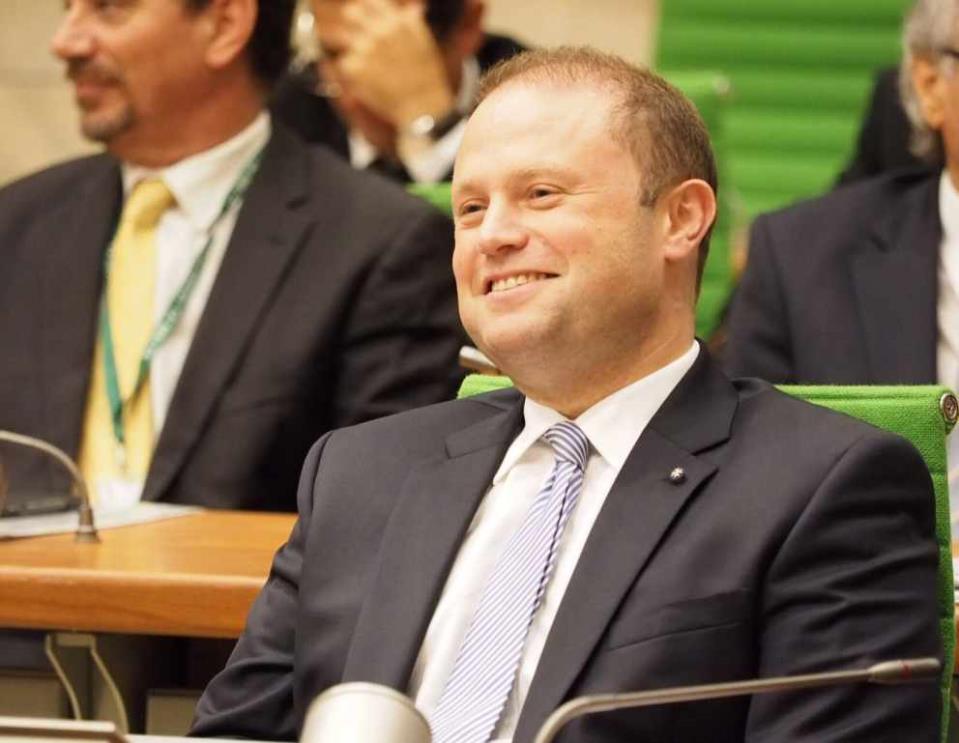
Dr Busuttil said the government had also been robbing people on petrol and diesel prices for over a year. He described the announced 3 cent and 4 cent decrease on the prices of petrol and diesel as “ridiculous.” Fuel prices did not only affect consumers but also business and the economy. In trying to justify the high prices the government was taking everyone for fools. People were being robbed out of some €8 a week when compared to other countries.
The government had now admitted that it was keeping prices high in a bid to reduce traffic. He questioned the Finance Minister’s economics, insisting that people would not make more trips if prices were cheaper.
Studies showed that traffic was costing the economy some €300 million. People were arriving for late for work, children were being late for school and patients were arriving late for medical appointments.
Traffic is not a perception, it has become a procession, he said, a twice daily procession.
While no one was saying that the problem started under Labour, the current administration promised solutions when it had none. The Prime Minister was directly responsible because he had appointed incompetent people in certain positions. These included Transport Minister Joe Mizzi, TM CEO James Piscopo and advisor Toni Abela.
The Labour government had ‘destroyed’ the public transport system it found in place when elected out of pique. The new system was, at best, equal to Arriva but instead of receiving €10 million in subsidies they were being given €30 million.
The 2013 tender for Intelligent Transport Systems had been forgotten. Individuals, he said, were coming up with better initiatives than the government on traffic.
The government had also ignored a PN proposal on free school transport and had wasted three years on the Gozo link project. A 2012 preliminary report on a tunnel link was discarded by the PL but the option is now back on the table.
Dr Busuttil said he had asked Shadow Minister Marthese Portelli to work on a list of short-term solutions to ease the traffic problem. He had also asked MP Tonio Fenech to lead a working group to study longer-term solutions, such as infrastructure and alternative means of transport.
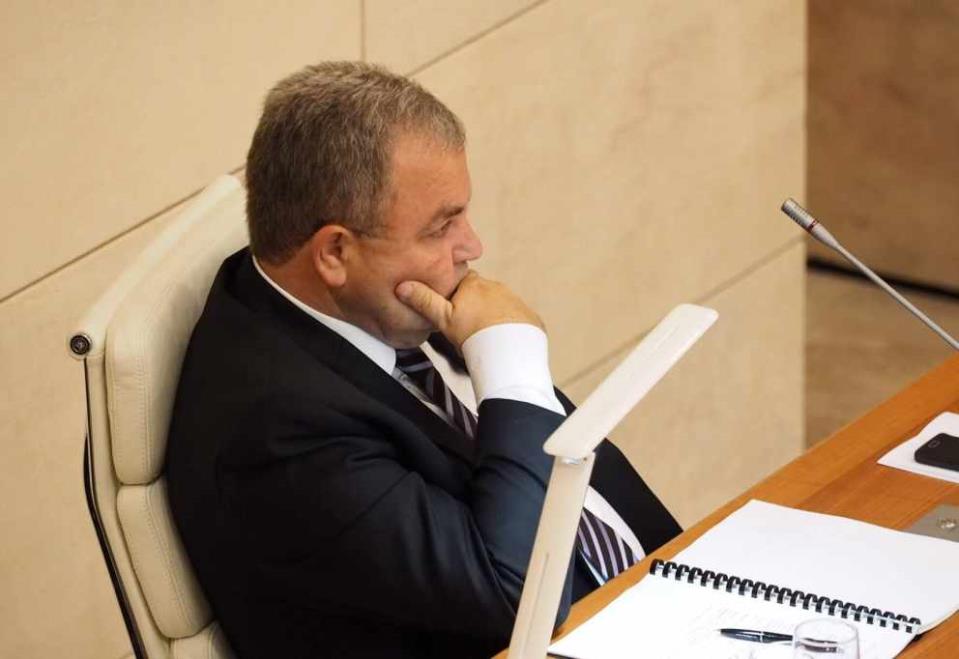
Turning on the subject of dignity, Dr Busuttil said a healthy economy should result in more money in people’s pockets. This was not the case. What the government was not saying was that the cost of living rate in Malta was the highest in the EU.
Salaries were also not increasing. The average salary was increasing by €200 a year when, under PN administrations it increased by some €500 a year.
Pensioners were not coping with the increase in the cost of living. It was a lie, he said, that pensions had been increased for the first time in 20 years. Pensions had been adjusted with the full cost of living increase for a number of years. Pensioners had also been given the opportunity to keep working beyond the retirement age whilst receiving a full pension.
The government had ignored a PN proposal for a study on second pillar pensions. Then it announced that social security contributions will increase and so will the retirement age. It had also pledged to eradicate poverty but there are now around 100,000 people at risk of poverty. The budget, he said, included no real solutions to help people better their situation. The PN had submitted a number of proposals but all were ignored.
Apart from raising tax on petrol and diesel the government had also raised taxes on cement and cigarettes. The one that would affect people the most was the new excise tax that would replace the eco-contribution. This would lead to an increase in the prices of important products, including bottled water. A new tax was imposed on the tourism sector.
The middle-class – a term favoured by the PM before the election – did not benefit from a single budget measure. The self-employed and shop owners were also left out.
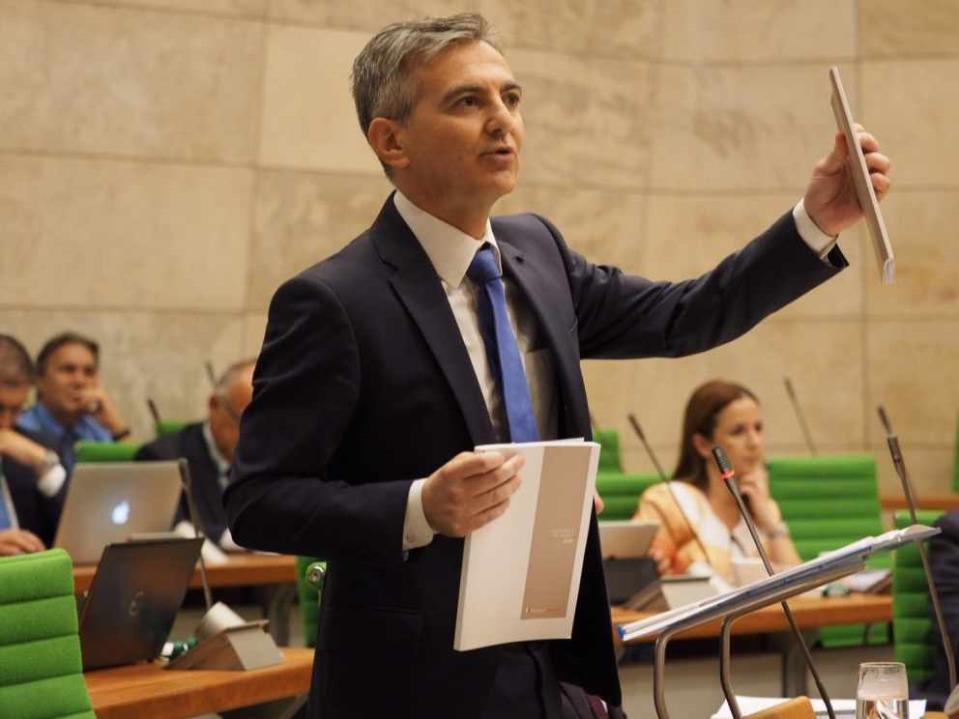
What happened to a new school every year, Dr Busuttil asked, and what about the health sector roadmap? What happened to patient dignity? The government boasted that the waiting lists for MRI scans had been reduced but failed to say that one had to wait more than a year for the results.
What hurt people most was the lack of important medicines, such as those for cancer treatment. People had to beg the Community Chest Fund for medicines that they should be receiving from the government.
The government was also planning to privatise the Gozo hospital in secret, and Gozitans would have no choice but to pay for private healthcare.
But the government’s worst failure was in good governance. This was not only a failure but a betrayal of the Maltese people. In this regard the government had done exactly the opposite of what it promised.
He accused the government of breaking its own law on party financing by refusing to vacate the Siggiewi civic centre. Transparency was non-existend, he said, mentioning the contracts with Henley and Partners, Sadeen, Shanghai Electric, Electrogas, SOCAR and Autobuses de Leon, all of which remain unpublished.
People close to the Labour Party, including most former Super One journalists, were being appointed in positions of trust or as government advisors with phenomenal salaries. Some of them still present propaganda shows on the PL station while being paid with taxpayer money. This was scandalous.
Genuine labourites had, however been left out. They were not needed anymore.
Dr Busuttil also mentioned several relatives of cabinet members who had also been put on the public payroll.
Scandals and corruption have become the order of the day, with reports of ministers in business deals or receiving favours from businesspeople. The Café Premier and Old Mint Street sagas had become household names. The government tried to blame the PN for some of these happenings but it could certainly not do so on cases such as the Libyan visas racket at Identity Malta. Dr Busuttil reiterated his call for an independent inquiry.
Corruption had reached serious levels and this harmed Malta’s name and reputation. “How can the government MP’s – apart from Marlene Farrugia – feel comfortable amid this situation?”
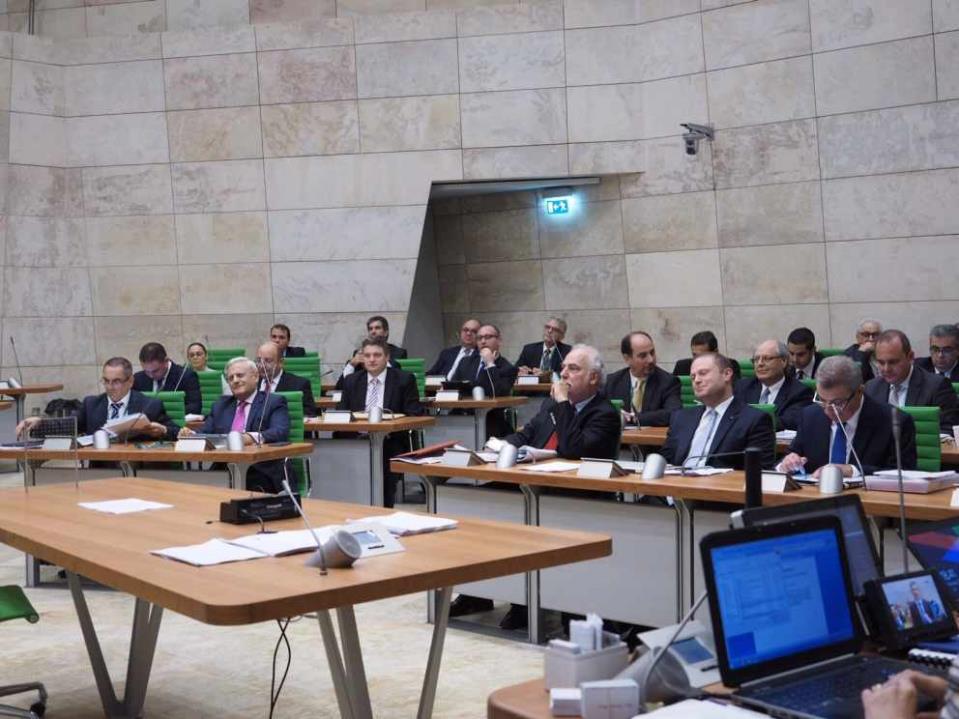
Dr Busuttil spoke about the need for a radical change in the way politics were done and in the way politicians behaved. That is why the PN would unveil a number of measures on good governance by the end of the year. These measures would come into force on the first day of a PN government.
Concluding, Dr Busuttil said there was a huge difference between the PM and the government and the Opposition. Joseph Muscat himself had proven this difference when he proudly admitted that he was a salesman. In two weeks’ time he will be in Dubai selling passports. It is clear that the PM’s philosophy is to do anything for money. “They sell everything and buy everything for money.”
Dr Busuttil said he disagreed that the Prime Minister should be a salesman. At least he should sell a genuine product, not a fake one. Instead of acting as a salesman the PM should look after the interests of the public. He said he was proud of the moniker given to him by the PM – Mr Standards – because that was his vision for the country.
Money was important but so was a good quality life, not getting stuck in traffic every day, the environment. Loyalty, genuineness, respect and decency were also more important than money.
This was a budget that gave a little to the many and a lot to the few.
Dr Busuttil called out to genuine labourites and nationalists to realise that they deserved better than this government. “I am offering you the change that you really wanted before the last election. We can do much better. I am offering an alternative government, one that is much better than this one, because you all deserve better.”
The Opposition Leader said a PN government would be one that respected people and was not just interested in their vote. It would be a government that would be interested in how to better the country rather than in how it could win the election – a government that planned for both today and tomorrow and, on top of everything, a government for all which treated everyone with dignity.